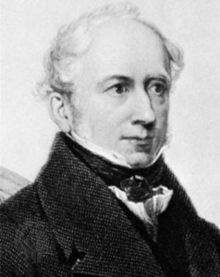To Castillo (John Castillo - The Bard of the Dales)
Although our creeds might vary, Castillo,
And our amusements might not be the same,
(For thou wouldst look with horror on my love
Of the fine dramas with which Sophocles,
Euripides, and Terrence moved the souls 5
Of Greeks and Romans in the days of old;
And those of Marlow, Shakspere, and the rest
Of England’s noblest dramatists, would scorn
To dance around the Maypole with a maid
Fair as the lily and as spotless too; 10
Yet as thou loved my Cleveland’s hills and dales,
And had compassion for her people’s souls,
And strove to gain them from their wicked ways;
Though thou too oft might in confusion blend
Mere innocent enjoyments with their abuse; 15
I love thee, noble if mistaken soul!
And would much rather err with Puritans—
Earnest, thou much too solemn—than defile
My spirit in the brutalizing pools
Of sensual debasements. And I would fain 20
Pay thee such honour as thou merited,
Among our Cleveland poets, though thy rank
Be not the highest: thou hast gained the hearts
Of numbers whom no other bard has won;
And as the vocal songsters of the grove 25
Vary in compass and in melody,
Yet all are welcome to the naturalist,
So in our poesy: not Homer’s strains,
Not Dante’s visits to the nether realms,
Nor Milton soaring to eternal day, 30
Are for all readers. Humble lays like thine
Solace the lab’ring dalesman in his toil,
Help him to bear the numerous ills of life,
And teach his soul to look from earth to heaven.
George Markham Tweddell (writing as..
‘
Peter Proletarius.’
Tweddell Published and edited one of the collections of
John Castillo -
[Castillo’s Dialect Poems ed. Geo. M. Tweddell (1878)]
http://en.wikipedia.org/wiki/John_Castillo
Tweddell wrote about John Castillo in his Bards and Authors of Cleveland and South Durham 1872 which you can download from the Tweddell Hub here -
http://georgemarkhamtweddell.blogspot.co.uk/2012/12/bards-and-authors-of-cleveland-and.html
And by WH Burnett in Old Cleveland - here
http://georgemarkhamtweddell.blogspot.co.uk/2012/12/old-cleveland-local-writers-and-local.html
A classic work on John Castillo is John Castillo Quinlan, Father D [1968] 'John Castillo Bard of the Dales' {Whitby, Horne and Sons Ltd
This balladic poem by Castillo - to the tune of
The Rose Tralee shows the depopulation of a village on the North Yorkshire moors as people emigrated via Whitby Harbour to America.
Reflections On Absent Friends, Gone To AmericaThe sun had gone down o'er yon lofty mountain,
The last golden streamer had left the tall tree;
The dwelling below seemed forsaken and gloomy,
Its inmates were tossing upon the wide sea.
The rose tree was nodding the lasses had nourish'd,
Which oft had supplied them with Sunday's perfume;
The wall-flower in sorrowful modesty flourish'd,
And wept o'er the beautiful daisy in bloom!
In the track by the river the green grass is springing,
On whose flowery bank they were oft wont to stray;
No more the still grove with sweet echoes is ringing,
To the voice of the milk maid, or children at play.
The dog in the night time now howls discontented,
Of its master and mistress but lately bereft;
I listen'd and look'd to the place they frequented,
Of them not a sigh, nor a whisper is left.
How strong the emotions of friendship were glowing,
When towed by the steamer the ocean they braved;
Their force was evinced by the tears that were flowing,
As the hat, or the hand, or the handkerchief waved.
From the shores of old England we anxiously view'd them,
A cargo most precious, and dear to our sight;
Far o'er the blue surface affection pursued them,
Till the ship was conceal'd by the curtain of night.
They have left us,—their absence wakes mournful reflection,
As the fast sailing Arundel bears them away;
We can only consign them to heavenly protection,
To Him, whom the winds and the waters obey.
He who roves through the wood may quickly discover,
Their affection in tokens which there he will see;
Where with sorrowful heart each friend or each lover,
May sigh o'er their names in the bark of the tree.
John Castillo
 of the poetry by Stokesley born, 19thC poet, author, Chartist, printer publisher and people's historian - George Markham Tweddell, whose poetry had been widely published in his day in numerous international newspapers, journals and other publications. Apart from his collection of 100 masonic poems, he'd never had a full collections or proper appraisal of his poetic works.
of the poetry by Stokesley born, 19thC poet, author, Chartist, printer publisher and people's historian - George Markham Tweddell, whose poetry had been widely published in his day in numerous international newspapers, journals and other publications. Apart from his collection of 100 masonic poems, he'd never had a full collections or proper appraisal of his poetic works.
.jpg)






